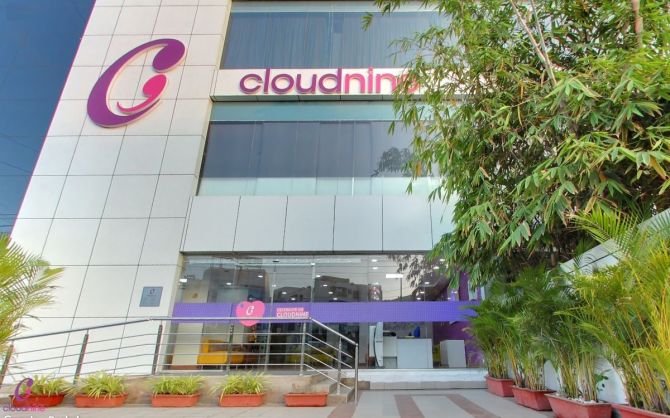No expecting mother ever needs to travel for more than 30 minutes to reach one of their hospitals, believes the Cloudnine group.

Raviganesh Venkatraman, CEO, Cloudnine Group of Hospitals said that they believe in 'densifying' the cities where they are present so that no expecting mother ever needs to travel for more than 30 minutes to reach one of their hospitals. "We already have nine centres in Bangalore, and we are trying to do the same with the National Capital Region (NCR), Mumbai, Pune and Chennai where we are present," Venkatraman said.
He said a city like Bangalore can take as many as 12 Cloudnine hospitals, while the NCR can have 25 hospitals, Mumbai and Pune can have more than 10 Cloudnine hospitals. "We have added seven hospitals in FY22 and we plan to add a similar number of hospitals in FY23, and this would roughly remain our run-rate in the coming years," he says.
Venkatraman feels that childbirth is an experience that young couples now want to savour, and the Cloudnine chain tries to offer that. "We do not see this as an illness, rather as wellness. This explains why the footfalls to our hospitals did not go down even during the pandemic, as people preferred to come to hospitals where they did not have to mix with patients suffering from various ailments," he adds.
The company has noted in the draft red herring prospectus (DRHP) filed with the market regulator Sebi that while the pandemic has adversely impacted business operations across various industries, including healthcare; during this period Cloudnine experienced an increase in demand for mother and baby care at its centres. "Our delivery count increased in the 2021 fiscal with more customers switching over to us given the heightened concerns of safety and infection," it said.
Cloudnine's revenues increased at a CAGR of 15.16 per cent from Rs 418 crore in FY19 to Rs 554 crore in FY21, while its Ebitda increased at a CAGR of 55.8 per cent. For the first six months of FY22, its revenue from operations was Rs 371.6 crore.
Venkatraman feels that there is enough room for growth in the Indian maternity and childcare market, which is estimated to be worth Rs 20,800 crore now. "About 70 per cent of this market lies with the government led set-ups, while private players have a 30 per cent share. Of this, only 5 per cent lies with specialty maternity and childcare players, and the bulk of the private market is dominated by standalone nursing homes," he explains.
While Cloudnine has no immediate plans to form public-private partnerships with the government, it is open to working with the government on its digital or e-NICU project.
They are now piloting one e-NICU (neonatal intensive care units) and plan to have six such by the end of April. The idea is to have digitally interconnected NICUs with a specialised software interface that allows doctors to remotely monitor and manage infants through high resolution cameras, accessing live-feed of the data from the critical care equipment.
Around 10 per cent of the 25 million children born in India every year are pre-term and need NICUs to survive. Since the government handles almost 70 per cent of total births, it also has the lion's share of the preterm births. Venkatraman thus feels that Cloudnine managed NICUs can be an answer to infant mortality in partnership with the government.
According to Crisil data, India has nearly 240 million women in the reproductive age of 25-49 years and ranked second after China in 2020, and has one of the highest crude birth rates of 18 births per 1,000 population from 2015 to 2020.
Maternal mortality and neonatal mortality rates were also higher in India compared to other countries.
In 2017, maternal mortality rates in India was 145 deaths per 100,000 live births compared to 29 deaths per 100,000 live births in China and 19 deaths per 100,000 live births in the United States, according to Crisil report.
In 2019, neonatal mortality rates in India were 22.7 per cent compared to the global average of 17.5 per cent.










